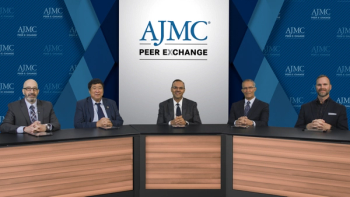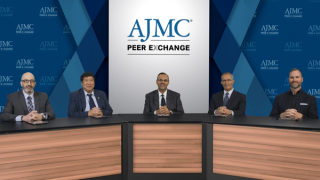
Cardiovascular
Latest News

Latest Videos

CME Content
More News

Researchers found a 30% increased risk of cardiovascular events in patients whose diagnosis was delayed by more than a year after an elevated blood pressure reading.

Patients who see a cardiologist at least once a year are about 24% less likely to die in the following year.

Older adults with cardiovascular disease (CVD) or CVD risk factors report that gaps in communication among their providers are common and hazardous.

A pharmaceutical-grade cannabidiol (CBD) product was shown to be safe in high-risk patients hospitalized with COVID-19, with no increased rate of cardiac side effects compared with placebo.

This study validates the Predicting Risk of CVD Events (PREVENT) score across diverse racial and ethnic populations, highlighting its effectiveness in predicting cardiovascular risk and mortality, regardless of race or ethnicity.

Offspring born to mothers with prepregnancy obesity, gestational diabetes, or hypertensive disorders of pregnancy had higher systolic and diastolic blood pressure levels than those born to mothers without these risk factors.

Experts discuss lessons learned from implementing lipid-lowering therapy recommendations and explore the role value-based care models may play in successfully adopting the National Lipid Association’s (NLA) recommendation for lipoprotein(a) (Lp[a]) testing.

Experts discuss lessons learned from implementing lipoprotein(a) (Lp[a]) testing in health care systems, how health systems can prioritize patients for testing based on the National Lipid Association’s (NLA) recommendation, the role of integrated delivery networks in helping providers identify priority patients, and strategies for adding electronic health record alerts for Lp(a) testing.

A study comparing biological aging indicators found that Rockwood Frailty Index was a stronger predictor of cardiovascular disease (CVD) than leukocyte telomere length in adults without prior CVD.

Antoine Keller, MD, argued the value of grounding health care policy in equity as clinicians prepare for a changing health care landscape in the coming years.

A community-based remote patient monitoring (RPM) program was associated with significant reduction in blood pressure in Medicare patients with stage 2 hypertension, highlighting the potential benefits of RPM with care coaching.

Antoine Keller, MD, discussed the future impact of technological advances for cardiovascular (CV) care and what other elements contribute to quality, accessible health care.

Experts discuss the current prevalence of lipoprotein(a) (Lp[a]) testing in the US, both in the general population and among those with established atherosclerotic cardiovascular disease (ASCVD), its commonality within health plans, and how payers, population health decision makers, and provider groups can integrate Lp(a) testing into broader population health management strategies.

Experts discuss how knowledge of lipoprotein(a) (Lp[a]) levels can empower patients in managing atherosclerotic cardiovascular disease (ASCVD) risk factors, how providers can collaborate with patients on Lp(a) testing and risk management, the potential population-level value of improved ASCVD risk assessment, and how the National Lipid Association’s (NLA) recommendation for one-time Lp(a) testing may benefit health systems.

Experts discuss how lipoprotein(a) (Lp[a]) testing, even without targeted Lp(a)-lowering therapies, can enhance overall cardiovascular risk assessment and potentially influence the management of other risk factors.

Experts discuss FDA-approved therapies for high lipoprotein(a) [Lp[a]) levels, their benefits and shortcomings, the frequency of their use in health plans, emerging therapies in the pipeline, and the expected timeline for associated data release.

The continued success of abelacimab throughout the AZALEA-TIMI 71 trials helps draw the drug closer to FDA approval, stated Sid Patel, MD.

Experts discuss the cost of lipoprotein(a) (Lp[a]) tests and how these costs, along with the National Lipid Association’s (NLA) recommendation and supporting clinical evidence, may influence payer decisions regarding coverage for Lp(a) testing.

Experts discuss whether providers should wait for another complete scientific statement from the National Lipid Association (NLA) or new guidelines from organizations like the American Heart Association (AHA) before implementing the 2024 NLA recommendation for universal lipoprotein(a) (Lp[a]) measurement.

Health care disparities are often driven by where patients live, explained Antoine Keller, MD, as he discussed the complex, systematic hurdles that influence the health of rural communities.

Experts discuss the evidence supporting the National Lipid Association’s (NLA) recommendation for universal lipoprotein(a) (Lp[a]) measurement and evaluate how compelling this evidence is from a clinical perspective.

Experts discuss how guideline recommendations influence formulary decisions regarding preventive measures like lipoprotein(a) (Lp[a]) testing, exploring the varying recommendations from organizations such as the American Association of Clinical Endocrinologists, the American Heart Association, and the National Lipid Association (NLA), and how these align with recent guidance from Europe and Canada.

Joseph Saseen, PharmD, discussed the importance of knowing lipoprotein a (Lp[a]) levels to enable clinicians to provide the best patient care and spread awareness to those who might be affected.

Lipoprotein a (Lp[a]) is a valuable tool for assessing a patient's risk of cardiovascular disease, which can facilitate earlier intervention efforts and reduce health care costs, argued Jeremy Wigginton, MD.

Experts discuss an example illustrating the association between lipoprotein(a) (Lp[a]) levels and atherosclerotic cardiovascular disease (ASCVD) risk and explore how this example can inform our understanding of Lp(a) and ASCVD risk on a population level.













